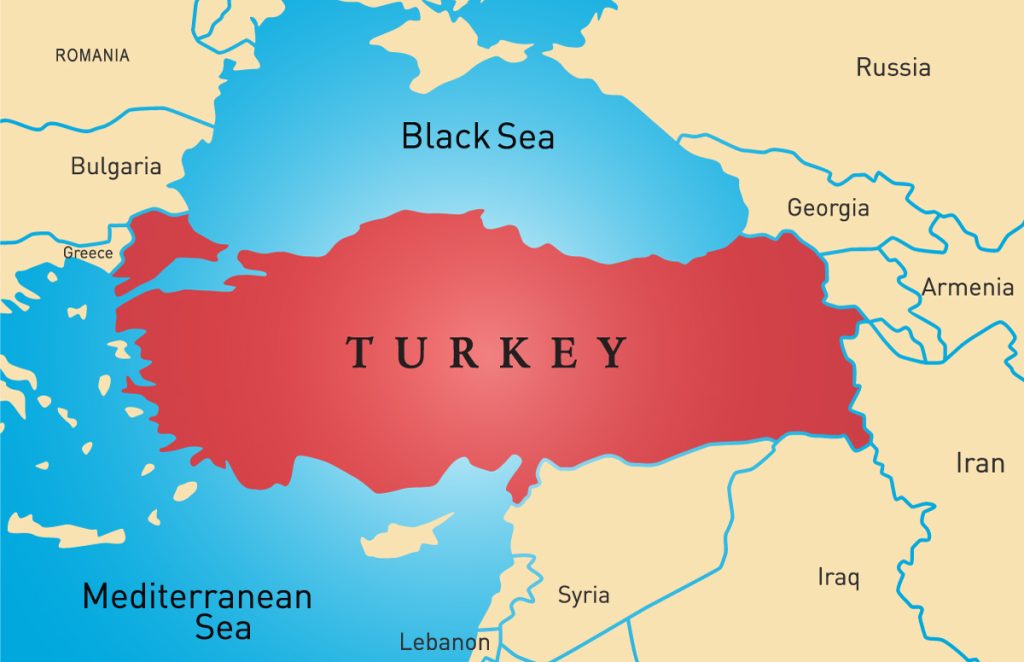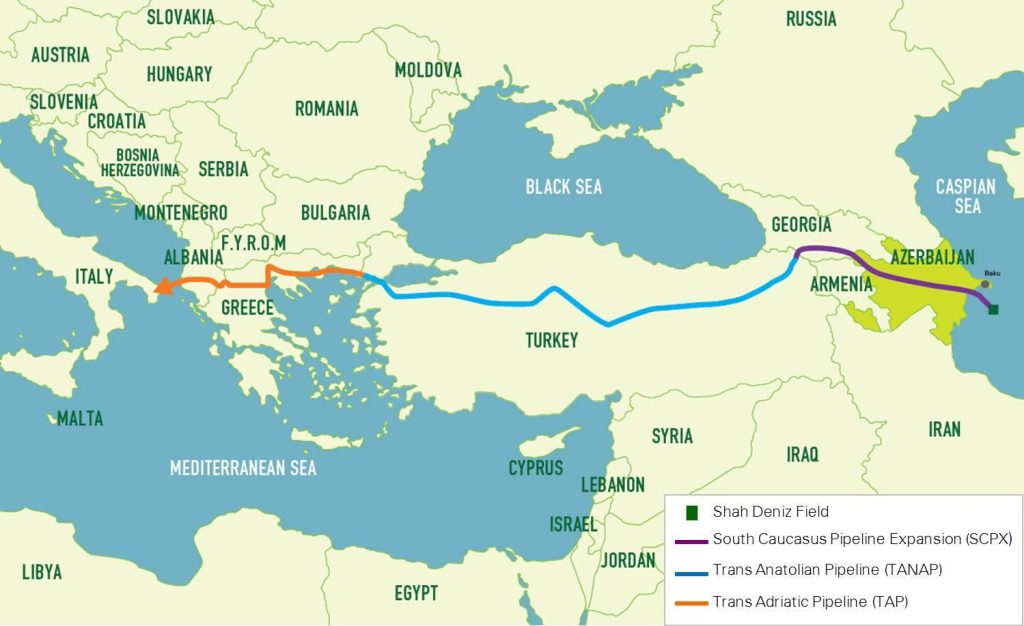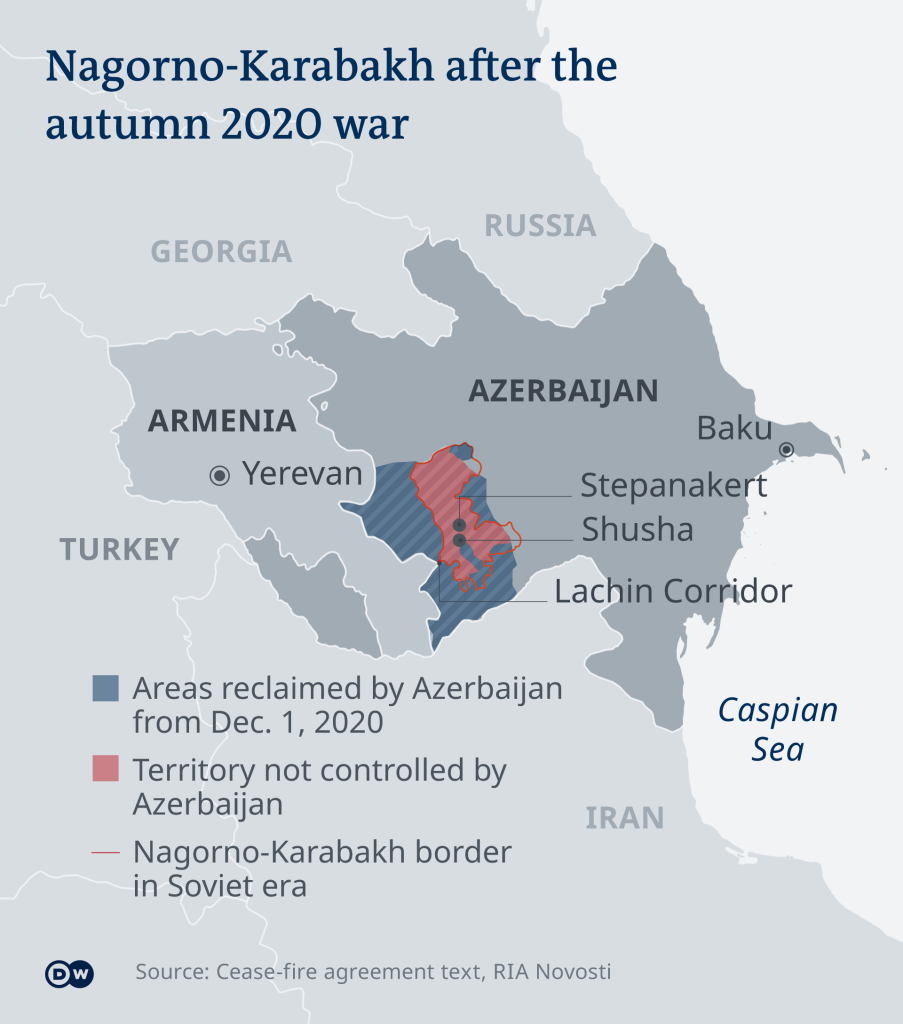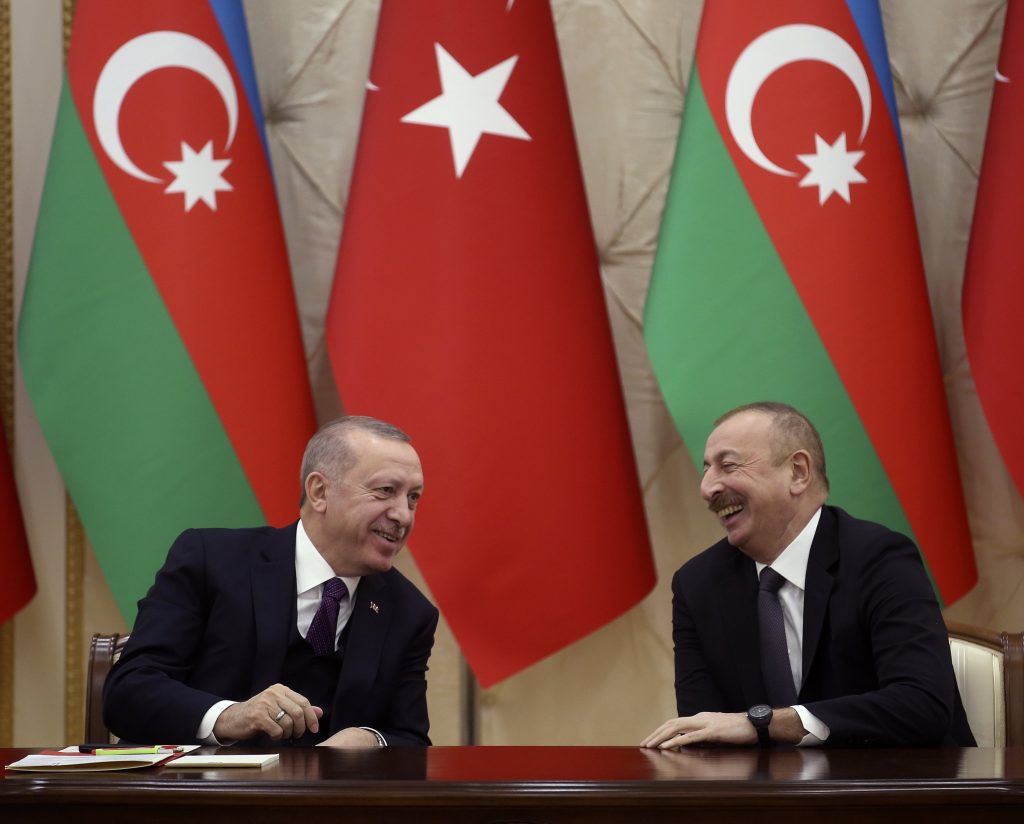Since the beginning of the Cold War, the unique geographical position made Turkey of paramount importance. Institutionally and militarily belonging to NATO since 1952, Turkey has embodied a tool to enhance a containment strategy vis-à-vis the Soviet Union in the western margins of the Eurasian landmass in line with the principles of the Truman Doctrine. However, while during the phase of the bipolar confrontation between blocks Turkey’s role was substantially that of containment, with the end of the Cold War its new role has become that of a connecting bridge.
The complex geographical nature and the varied regional composition offer Turkey the ability to manoeuvre in different strategic areas and to extend its influence in the neighbouring regions. One of the regions in which Turkey exerts a strong historical and cultural influence is the South Caucasus. In this area, Turkey represents together with Russia and Iran a key regional player. As a NATO member state, Ankara has supported the Atlantic integration process of the South Caucasus, while also supporting regional projects especially related to energy transport. In interacting with various local actors in the region, Turkey has adopted a multilateral and flexible approach, characterized by diversification and dialogue with all parties, including rival countries such as Armenia. Concerned about the regional balance of power, following the 2008 Russo-Georgian War, Turkey decided as much to strengthen its relations with Georgia and Azerbaijan as to promote a rapprochement with Armenia.

The dissolution of the Soviet Union created a regional power vacuum in the South Caucasus that led to both the rise of local national identities and geopolitical competition between major regional powers. Specifically, Turkey must take into account Russia and Iran, the two other neighbours that have historically dominated the Caucasus region. The very end of the USSR hinted at the possibility that a new struggle for regional influence could flare up between Turkey, Russia and Iran, as had historically happened between the Ottoman, Russian and Persian empires, even if political pragmatism and economic cooperation have generally prevailed over competitiveness.
Turkey began to show an interest in the region immediately after its emancipation from the USSR, trying to maintain balanced relations with Transcaucasian countries. Specifically, Ankara’s core strategy in the South Caucasus is determined by the excellent relations with Azerbaijan, which represents the best Turkish ally and economic partner in the region, by the satisfactory ties with Georgia and the difficult dialogue with Armenia. Today, Turkey’s crucial geostrategic weight in Transcaucasia rests on its role as a transit country for raw materials in the context of the East-West energy corridor which, starting from the Caspian region, extends to Europe. Since the coming to power of the Justice and Development Party (AKP) in 2002, Ankara’s priorities have been oriented in the implementation of energy transit projects from Caspian Sea hydrocarbons to European markets. Moreover, in terms of soft power, Turkey projects considerable influence in the South Caucasus. Turkish television broadcasts and shows are exceptionally popular in Azerbaijan and mutual tourist exchange is thriving. Furthermore, Turkish religious influence is notable, not only in Azerbaijan – even though about 80% of the Azerbaijani population professes, unlike Turkey, the Shia version of Islam – but also in the Muslim regions of Georgia, like the Adjara region.

In its approach towards Azerbaijan, after an initial invasive approach inspired by Pan-Turkism at the end of the Cold War, Ankara has revisited its previous ambitions and returned to a more pragmatic attitude. Still, Baku occupies a special place in Turkish foreign policy due to linguistic and cultural affinities since Turkish Sunnism and Azerbaijani Shiism have not hindered economic and strategic cooperation between the two countries. At the same time, Turkey has always actively supported Azerbaijan’s position in the Nagorno-Karabakh conflict, as well as in other regional security issues. In economic terms, Turkey and Azerbaijan are linked by a multiplicity of agreements that guarantee exchanges in a variety of sectors, including the energy sector. Since its independence from the USSR, Azerbaijan has adopted a policy of equidistance and non-alignment with both Russia and the West, keeping Turkey as its main strategic ally. Generally, Azerbaijan can afford to adopt a neutral position mainly thanks to the energy riches of the Caspian basin, which make it a country which others have an interest in dialoguing with. Today, Azerbaijan embodies for Turkey a fundamental element for its role as an energy connector between the Caspian Sea and the Mediterranean Sea, thanks mainly to the Baku-Tbilisi-Ceyhan (BTC) oil pipeline and the Baku-Tbilisi-Erzurum (BTE) gas pipeline. Specifically, the BTE transports gas from the Shah Deniz field in Azerbaijan through Georgia to Anatolia, from where it then connects to the Trans-Anatolian Pipeline (TANAP), which in turn connects to the Trans-Adriatic Pipeline (TAP). The Ankara-Tbilisi-Baku axis is crucial to ensure the full functionality of the West-East energy and transport routes, as Azerbaijan produces natural resources, Georgia acts as a transit corridor and Turkey concludes the route allowing goods to access international markets, especially the European one.

As far as Armenia is concerned, Ankara’s relations with Yerevan are still very delicate and complex. In 1993, in solidarity with Azerbaijan, Turkey closed its borders with Armenia as a countermeasure to the occupation of Nagorno-Karabakh. Since then, this conflict – along with the age-old question of the Azerbaijani exclave of Nakhichevan – has represented an insurmountable obstacle in the normalization of bilateral relations. Another thorny issue has been that of the Armenian genocide. Armenia considers the massacre of the Armenian populations carried out in 1915 in the Ottoman Empire as a genocide and has actively campaigned internationally to have it recognized as such, although Ankara denies the extent of the massacre. Due to the absence of normal diplomatic relations and due to the closed borders with Turkey and Azerbaijan, Armenia is highly dependent on Georgia and Iran for the transit of people and goods. Furthermore, in terms of energy supply, Armenia has been excluded from the regional projects of the BTC and the BTE, thus being entirely dependent on energy imported from Russia and Iran. Today, the resolution of the Nagorno-Karabakh conflict and the strained relations with Armenia represent Turkey’s main challenge in the South Caucasus. Revanchism and Armenian irredentism are still a driving force behind the creation of a Greater Armenia that includes the former Soviet regions of Nagorno-Karabakh – today the Republic of Artsakh – and Nakhichevan in Azerbaijan and Javakheti in Georgia, as well as Eastern Anatolia in Turkey.
Finally, in relation to Georgia, the proclamation of its independence from the USSR in 1991 allowed for the building of solid relations with Ankara. For Turkey, the Georgian territory represents an entrance corridor to the Caucasus and to trans-Caspian Central Asia as well as a fundamental hydrocarbon connector of the Caspian basin. Turkey has repeatedly affirmed its support for Georgia’s European integration and NATO membership, reaffirming Georgian territorial integrity in light of Russian military intervention in Abkhazia and South Ossetia.

In conclusion, with the end of the Soviet era, the South Caucasus has assumed an important place in Turkey’s foreign policy agenda. Since 1991, Ankara’s foreign policy has maintained a keen interest in the Caucasus region, especially due to its importance in the energy sector. Clearly, the thorniest issue for achieving a normalization of Turkish relations in the South Caucasus stems primarily from the dispute with Armenia over Nagorno-Karabakh. In this sense, Turkey’s best partner in the region remains and will remain in the foreseeable future Azerbaijan. Despite the territorial and geopolitical disputes in the South Caucasus, Turkey has already become an indispensable actor for energy transportation and an essential trans-Eurasian connector between Europe and Central Asia.
Paolo Pizzolo
